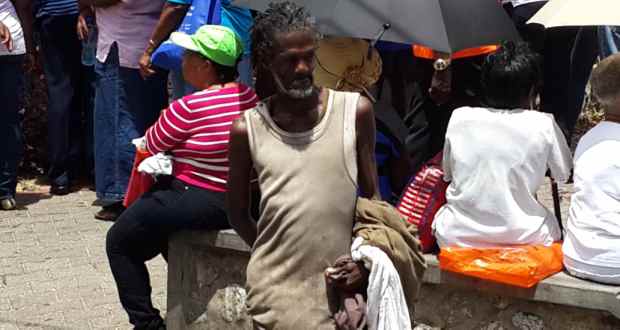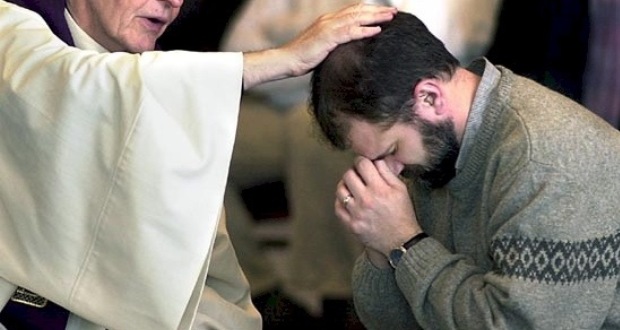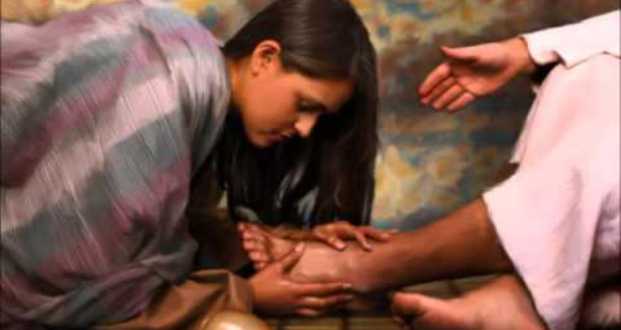The Ears Of The Deaf Unsealed

And immediately the man’s ears were opened, his speech impediment was removed, and he spoke plainly.
(By Fr. Dexter Brereton)
This Sunday we see Jesus carrying out a cure of a man that is strangely intimate but at the same time fairly repulsive. The man is described as “a deaf man who had an impediment in his speech.” Jesus takes him aside away from the crowd and “put his fingers into the man’s ears and touched his tongue with spittle.”
First some background. It is important to remember that the miracles performed by Jesus were not necessarily acts that we, his disciples are meant to emulate. They are rather, signs, or glimpses of the presence of what Jesus referred to as the Kingdom or Reign of God. The Kingdom is God’s final intention for all of creation; it is the ultimate destiny of all of human history. Jesus’ miracle may be likened to the ‘time-lapse’ photography that we see on Discovery Channel or the National Geographic channel which speeds up the processes of nature so that that something that takes a very long time – like the growth of a plant from a seed – is seen to occur in just a few minutes. In the healing of people such as this man, we catch a glimpse of the end of history. The story contains a number of words or phrases which can really stir our imagination if we allow them: “impediment in his speech” “took him aside, away from the crowd”, “put his fingers into the man’s ears”, “touched his tongue with spittle”, “sighed” “ephphatha” “the ligament of his tongue was loosened.”
In this miracle Jesus puts himself into contact with the man in a way that many of us would consider ‘unclean’ or unhygienic. He puts spittle on the man’s tongue. As a boy growing up coming into contact with someone’s “jutta” or spit was a no-no. As children the surest way to prevent another greedy child from eating your food was to pretend to spit on it. He also comes into contact with the man’s earwax, since, as the story relates, Jesus “put his fingers into the man’s ears.”
Nonetheless, the story rings true. In the journey of life, as we enter deeply into, and share the personal stories of other people and as they enter into ours, we all come into contact with “unclean” and “messy” emotions. Entering deeply into the story of a friend, in a way that helps and heals them would necessarily involve our “putting our fingers into their ears and touching their tongues with our spittle.” The strange thing about many of these unclean emotions is that they are also a source of “impediments” to our speech, as we read in the story. People are made “dumb” by fear, sadness, anger, unforgiveness and so on. People who are very angry for example, are only at ease with expressions of anger, and this narrows their range of communication – so that the only thing they often seem to communicate is “I’m bloody angry!” It is the same for other overly-dominant emotions.
As a seminarian, I was sent to deal with a number of anger issues and the therapist on that first day listened quietly to me as I poured out my story as I “cussed and I cried” and ended finally with the statement. “Life is so unfair!” She replied: “Where is it written anywhere that life is fair? As an adult, I take up my position, I stand my ground and take my licks.” These words helped me enormously, and the ligament of my tongue was loosened and I was able to speak clearly, not just about the bad and annoying things that happened in my life but the good things as well. The opposition I experienced was a normal part of the process of a busy life. This process reminds me of a poem by William Blake called “A Poison Tree”. In the first stanza we read:
I was angry with my friend;
I told my wrath, my wrath did end.
I was angry with my foe:
I told it not, my wrath did grow.
My therapist, putting her hands into my ears and touching my tongue with spittle allowed me to “tell my wrath”, helping me to heal. Had I not been able to ‘tell my wrath’, then I would have had to watch it grow.
As the in-coming pastor of Holy Trinity parish, it has been enormously gratifying to me the manner in which a number of the parishioners have took the time to speak their own truth about the parish to me. Many of the views expressed have been refreshingly candid and at times has put me into contact with ‘uncomfortable’ or ‘unclean’ emotions. Nonetheless, I hope through my communication with them, to provide a ‘safe space’ where parishioners can speak freely on the matters that affect them, and through this, come to a much greater appreciation of just how extraordinarily gifted and blessed we are in the parish of the Holy Trinity. God bless you all.
[FreshBundle bundle_id=”patrick_madrid_001″ layout=”featuredlist” featured=”1928832180″ custom_title=”The Joy Of Being Catholic” ribbon_text=”Save Big!” custom_buy_button=”Buy Now” custom_cta=”Buy All NOW And Save BIG!” target=”blank” ]






